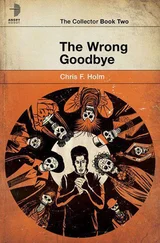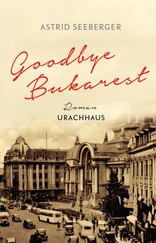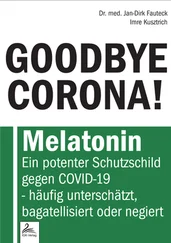At this moment, neither of them knows why he’s in prison, and Juliette doesn’t even know he’s there. So she doesn’t understand why Olga ran to see her first. Normally when you love a man the way she loves Elias, he’s the one you run to first. But Juliette doesn’t dare ask the question, of course.
“OK, to the shower!” she says like a Scout troop leader as she gets up.
“No, wait a little! This sun is too nice,” Olga answers. “In a month it’ll be frying us like potatoes, let’s take advantage of it!”
They leave the Landwer to walk to Olga’s in Yafo and get there in less than ten minutes. Where can Elias be? Juliette still wonders. Would he be waiting for them there? And she prepares herself for this improbable encounter. He’ll be flabbergasted when he sees her, of course. So all through the walk, she tries to master her anger at him. On the other hand, it’s a pleasure not to have to hide anymore, not to have to see him on the q.t. when Olga disappears for a day or so. On the way, Jérémie calls again, but Olga still doesn’t pick up.
“He’s really bugging me now!”
“It’s the lawyer again?” Juliette worries.
“Yeah, and he doesn’t even want me to pay him, don’t you think that’s fishy?”
“He’s in love.”
“You got it, girl!”
But Elias is not at Olga’s, and this absence is starting to make Juliette anxious. What if he comes back all of a sudden and finds her there? She makes a few phone calls to make herself look busy. She calls artists who asked her for an appointment—that disguises her edginess—and then the gallery, to notify them she’ll be back in only in the early afternoon, and her boss is concerned she dropped a client in the middle of a sale just to follow her girlfriend. “Don’t worry, he’ll be back,” she answers, without justifying herself any more than that. She hangs up savoring the new status she’s gained at work. She does what she wants, she comes and goes, she gets there at no particular time and leaves when she feels like it. A real diva. As long as she stays, her boss must tell himself, to accept behavior like that. But at every step on the landing of the stairs, she shudders.
Olga comes out of the shower fifteen minutes later, after using all the hot water in the tank.
“They didn’t want to tell me if they’d released you or not, can you imagine?” she says, knotting a towel around her hair. “I could see you weren’t in the other cells as I went by, and that was a relief, but at the same time I was so mad at myself for getting you into this shit, oh my God!”
Olga goes into her room, pulls clean clothes out of the closet, and spreads them out on her bed, smiling.
What a joy to be able to pick what you’re going to put on, just think of it! Yes, that makes her smile: this kind of thing is so trivial in ordinary life but so extraordinary after captivity. She drops her bath towel without hiding from Juliette and puts on panties, a black miniskirt, and a T-shirt, while Juliette senses the moment is approaching when she’ll have to tell her about the evening that followed her return to Tel Aviv. How can she avoid it? But she’s such a bad liar!
“I hope we’ll be able to make that trip together again,” she says to change the subject.
“Oh yes,” Olga answers, “the desert is so beautiful.”
“You know, still further south, there are landscapes that look like the surface of the moon.”
“You’re not hungry?” Olga asks.
They go down to eat a salad in the pedestrian shopping street below the building, and of course Olga finally asks her what she did when she got back to Tel Aviv the previous Saturday night.
“You must’ve called Manu when you got back, right?”
“Not right away, no,” Juliette answers, somewhat taken aback. “I was exhausted, I just wanted to sleep.”
“Poor Jul! It must have been awful to go back in that bus,” Olga says sympathetically.
“Especially after what happened to us.”
“And the next day, you did call him, finally?”
“Umm, well, no,” Juliette admits, embarrassed. “No, no, the next day not at all, I waited for him to… well, I mean, here’s what happened: I bumped into him as I was going to work, that’s what… and he already knew, can you believe it?”
Olga takes her hand again and squeezes it hard in hers, without trying to find out if she called Elias or not that night. Or the next day. At one time or another, in any case. Decidedly, the topic is too hot to touch. She can see it by Juliette’s embarrassment as soon as they get near the theme, so she creates a diversion by bringing up her return to work.
“I’ll go there tomorrow,” Olga says. “You can’t just go straight from jail to job. You think I’ll be able to get back into it easily, Jul? I’m so afraid they’ll look at me like I have the plague.”
“Don’t worry about it, that’s not the most important thing for the moment.”
“No, that’s true,” Olga admits. Suddenly she takes the bull by the horns. “You know about Elias?”
“Know what?”
“He’s in prison, Manu didn’t tell you?”
“No!” Juliette exclaims, with tears in her eyes. “He finally gave himself up?”
Her heartbeats turn into palpitations. She can’t stop herself from thinking again of that night, always the same night, when she advised him to turn himself in, a night she’d like to erase from her memory forever, a night of betrayal and a second wife… but a delightful night, too—her last night of love and pleasure with the man she loves. Yet she’d rather never have lived through it. Now she thinks Elias followed her advice, and she has a funny feeling. Something like gratitude. Well, no, not gratitude, but something like that: respect. There , she tells herself, for once he listened to me, for once he respected me . So all her reproaches fade into the background, far, far behind this feeling. All her reproaches are now obsolete. Not that she no longer resents Elias, but an injustice has been repaired. Her urge to stab him erased like chalk on a blackboard. She feels pacified, even if that last night of love with him still lurks in a corner of her mind like a delight and a reproach, both. One day, perhaps, she’ll have the strength to confess it to Olga. Then everything will be tender again, then everything will be fine.
THE END

Photo © 2019 Fabrice Calvo
Marco Koskas, the author of fifteen books, was born in Tunisia, grew up in France, and now lives in Israel. In 1979, his novel Balace Bounel won the Prix du Premier Roman, and he was a fellow of the French Academy in Rome from 1980 to 1982. In 2012, reviewing Mon cœur de père (Éditions Fayard), Patrick Besson wrote in Le Point : “Koskas is a fighter for his own style. He has remained raw as a Tartar warrior.” In 2018, after being rejected by numerous publishers, Koskas self-published Goodbye Paris, Shalom Tel Aviv on CreateSpace, and the novel was short-listed for France’s prestigious Prix Renaudot.

Photo © 2009 Nicole Ball
David Ball is professor emeritus of French and comparative literature, Smith College. He was named Chevalier dans l’Ordre des Palmes Academiques by the French Republic in 2017. He was president of the American Literary Translators Association from 2003 to 2005. His Darkness Moves: An Henri Michaux Anthology 1927–1982 won the MLA’s award for outstanding literary translation in 1995, and his Jean Guéhenno Diary of the Dark Years: 1940–1944 won the French-American Foundation 2014 prize for translation (nonfiction).
Читать дальше














